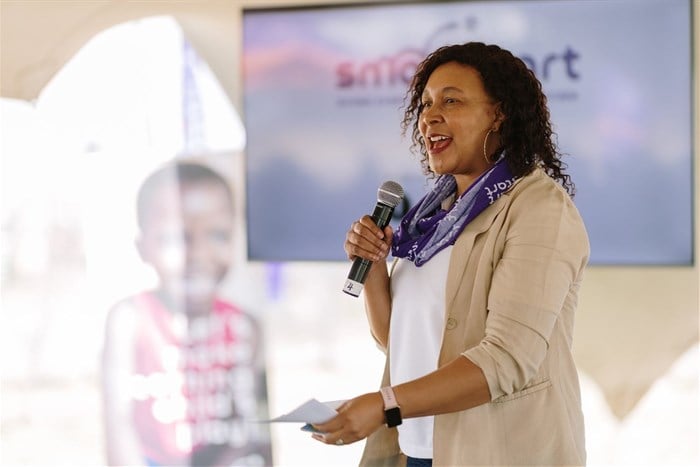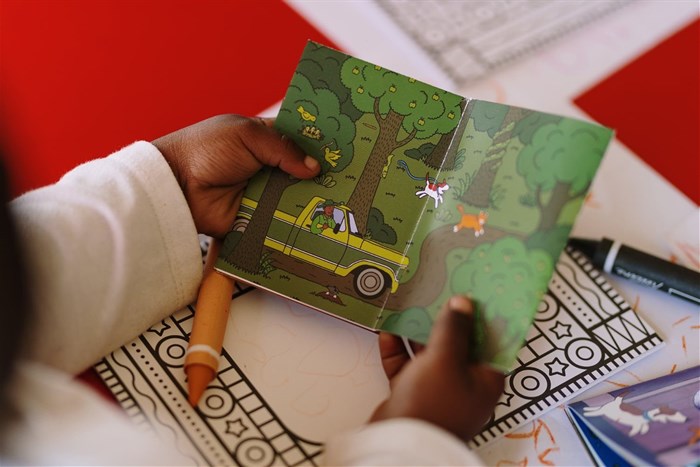With only 2% of children's books in South Africa being published in local languages other than English, early learning non-profit SmartStart has sought to create a collection of storybooks that transcends the language barrier. Working in partnership with author, playwright, and poet Gcina Mhlophe, SmartStart launched its wordless storybook initiative this September, in celebration of International Literacy Day.

Naomi Koatla at SmartStart wordless book launch
“One of South Africa’s biggest challenges is the large proportion of children who cannot read for meaning. Without a strong foundation in early literacy learning before primary school, children are not equipped to read and write, and often struggle to achieve their academic potential. The aim of our wordless storybooks is to help build literacy skills for children aged three to five years old,” says Naomi Koatla, SmartStart's Gauteng branch operations manager.
“Parents often don’t realise the value of story sharing, or even just talking with their child. Storytelling is a huge part of our South African heritage, and is especially powerful as shared experience with a caregiver,” says Mhlophe, who has been writing and performing on stage and screen for over 20 years.
Dr Phillip Louw 7 Sep 2022 Here we chat further to Koatla about the initiative and the importance of storytelling in early education.
What are wordless storybooks?
Our wordless storybooks include images only; this allows for story sharing in any language. The books promote playful learning interactions between parents and children, and enable the continued development of language and literacy skills at home. They are designed to encourage curiosity, talking and emotional connection, as children and adults share stories together. Our aim is to help children develop a love for reading and by doing so, build literacy skills for long-term success.
Developed as part of SmartStart’s early learning curriculum, the wordless books are printed onto a single A4 page, folded up into a booklet that is easy to transport and use in any setting. Each book includes illustrations in authentic and recognisable South African contexts, and is accompanied by an activity sheet that is translated into all 11 official languages.

SmartStart wordless storybook
What are the benefits of wordless storybooks, in a multilingual country like South Africa?
Only 2% of published children’s books in South Africa are printed in local vernacular languages and so our wordless books fill some of this gap by enabling story sharing in these languages. This is critical for successful early learning and literacy development, which is needed for school and later in life.
How can these books be used in the context of learning to read and write?
Reading is fundamental for early childhood growth and prepares young children to excel in school. Our wordless storybooks help build important literacy skills for children, during their early learning years. These include vocabulary, speaking, listening, and developing a love for reading and books.
Why is storytelling so important in education?
Storytelling is one of the simplest and most effective ways to help children develop language skills, expose them to new ideas, and build their love for learning. Our wordless storybooks are useful tools, especially in under-serviced communities, where literacy levels can be low. The books enable story sharing between children and their parents or caregivers - while building the skills needed to succeed in school and beyond.
How many different stories are currently available and where can ECD centres apply to receive them?
There are 10 wordless storybooks available, which cover various themes – animals, colours, feelings, home and family, my body, my world, nature, shapes, shopping and transport. SmartStart Early Childhood Development programmes have been provided with 10 books in each theme, which will be distributed to parents and caregivers monthly, based on early-learning activities and topics.




































